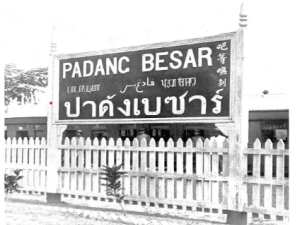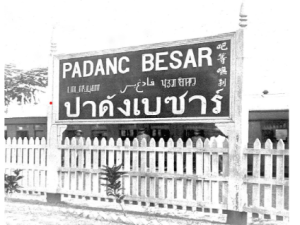In the midst of the darkest of times, a heartwarming story of friendship flourished within the confines of a prison cell during World War II. This inspiring tale will warm your heart and remind you of the enduring power of genuine human connection. Let's dive in and be inspired by this incredible story!
"A tall young handsome, well-built Sikh soldier was brought into the prison as a prisoner. I thought he was probably a stool pigeon planted by the Japanese.
The guards insisted that he sleep next to me probably with the idea of degrading both of us. I tried to stay as far away from him as possible, but that was not easy in a cell 10 feet by 18. I woke in the middle of the night when something moved inside my blouse. I had instinctively grasped the moving object.........."
Freddy Bloom, an American journalist, was arrested on October 22nd, 1943, by the Japanese secret police known as Kempe-Tai. She was suspected of being involved in a widespread espionage ring. Despite being incarcerated as a prisoner of war after the Japanese capture of Singapore, she never lost hope. She endured terrible conditions in captivity until her release at the end of the war in 1945. Her courage and resilience continue to inspire many.
She was detained along with many male prisoners until April 10, 1944. For five months she was put into a cell in the infamous Kempe-Tai Interrogation Headquarters, Singapore as a civil prisoner with fifteen men who were being systematically tortured for information that would convict their colleagues.
She witnessed horrendous acts that will be forever indelibly etched into her memories. She was starved, forced to crouch in a sitting position, and forbidden to speak.
After the war, Freddy published her memoirs of her time in Changi in a book of letters addressed to her husband entitled "Dear Philip." In her memoirs, she recounted an interesting story about a Sikh Prisoner of War.
On the 23rd of October, a tall young handsome, well-built Sikh soldier was brought into the prison as a prisoner. Freddy Bloom thought he was probably a stool pigeon planted by the Japanese.
The guards insisted that he sleep next to her probably with the idea of degrading both of them. She tried to stay as far away from him as possible, but that was not easy in a cell 10 feet by 18. She woke in the middle of the night when something moved inside her blouse.
She had instinctively grasped the moving object, which had jumped out and ran away. It was a mouse. She was so horrified she woke the Sikh, who was only an inch away. The bearded ferocious - looking Sikh smiled reassuringly and patted her arm 'Thik hai memsahib? Tid apa (Never mind in Malay). Is only leedle mize.'
In the months that followed, he and Freddy Bloom made several attempts to tame the mouse by offering grains of rice, but they were unsuccessful. Eventually, they became good friends, but they had to pretend to be hostile in front of the Japanese.
His English was strictly limited but uninhabited. "Our conversations were delightful, for I often did not have the faintest idea what they were about".
Each time we hear the Kempe-Tai's arrival in the outer office we would all sit, breathless as they came into the corridor. They would stop in front of our cells and shout out the names of those wanted for questioning. The victims were called out at all times of the day or night.
He went through interrogation and torture by the 'Kempe-Tai ' Japanese Gestapo. His turban was taken away by the Japanese in case he tried to hang himself with it but they had left him his comb.
Sikhs never cut their hair and have not only beards but thick long black tresses which they cleverly coil in a knot on top of their heads and keep in place with a small wooden comb.
He was beaten up by the Jap torturers and was flung into the cell bleeding and green with pain each time. Freddy would nurse him back to a semblance of strength again. When he was ill, she would wash his dirty pants. When she was ill He would take his shirt off and put it over her. Friendships were built based on such gestures.
Now the Sikh soldier was just skinny and no longer a strong, handsome, young soldier. His beard and long, coiled hair we no longer sleek and shiny. His smooth brown skin had a greenish hue. Perhaps dark skins always turned green when fair skins became pale.
His greatest gesture was when he lent me his wooden comb. After we had been together for some days he watched me trying to comb my hair with my fingers. He handed me his precious wooden comb. His gesture meant a great deal. Thereafter he lent it to me every day, but he would never lend it to anyone else.
On Christmas Day 1943, he woke up, He rolled his head on his stiff neck and started to massage his body. He turned to me and smiled " May Kismas, memsahib." " Merry Christmas Mahinder"
Today Kismas. Today good day. Today all go home, catch big eating." After 75 days of the Kempe-Tai, he was still the complete optimist.
We made plans for meeting after the war, he promised he would be wearing a fine shirt and turban ' very silk, very butterfly' He was my friend. We had played a great joke on the Japanese. This joke was our bond; it was our strength and we were determined to emerge victorious from any challenge that lay ahead of us.
On Christmas Day, everybody wished everybody else compliments of the season. That night I went to the toilet in the corner and washed my hair with the soap and Mahinder Singh lent me his comb. That was Christmas 1943.
Resources:-
"Dear Philip" A diary of captivity, Changi 1942-45 by Freddy Bloom






